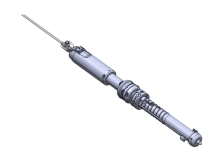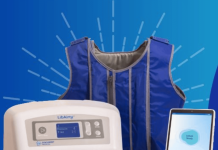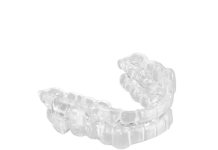Kandu Health and Neurolutions announced today that they merged to form Kandu Inc. to set a new standard of care for stroke recovery.
The companies aim to deliver a first-of-its-kind, end-to-end solution for stroke survivors. They seek to combine brain-computer interface (BCI) technology with personalized telehealth services.
Kandu, a former Imperative care subsidiary that spun out in 2022, previously partnered with Neurolutions on this front. The tech-enabled healthcare services company provides remote, multidisciplinary stroke support. Neurolutions develops non-invasive BCI technology for post-stroke therapy.
Related: TOOsonix and Consultronix to introduce ultrasound skin therapy in Poland
The IpsiHand system, an FDA-cleared solution, enables non-invasive at-home rehabilitation for stroke survivors affected by chronic motor deficits. IpsiHand accelerates motor recovery of the affected upper limb after chronic stroke.
In 2023, the companies linked up to use BCI in post-stroke recovery. Both companies were featured on MassDevice’s list of BCI companies you need to know in 2023.
Now, the companies are merging to pursue the same goal. As part of the merger, Kandu completed the first close of a $30 million financing. Ally Bridge Group and AMED Ventures led the round. Proceeds support ongoing commercialization and continued execution of its mission.
With the merger, Leo Petrossian, Neurolutions’ CEO, becomes the new CEO of Kandu. Kirsten Carroll, Kandu Health’s CEO, will become chief marketing officer of the newly formed company.
“We are excited to bring together Neurolutions’ medical device expertise with the AI-supported digital health solutions of Kandu Health. This merger positions Kandu, Inc. as a leader in the stroke recovery space and allows us to offer a seamless continuum of care, from the immediate post-acute phase through chronic rehabilitation and recovery,” said Petrossian. “Kandu, Inc. is now able to offer a truly integrated care experience that aligns with the needs of stroke survivors, healthcare providers, and caregivers.”
Leaders believe the combined infrastructure and technology of the two companies can deliver a breadth of services previously unavailable or inaccessible to stroke survivors. Those include telehealth rehabilitation, therapy monitoring, education, caregiver support, advocacy and navigation.
Services provided by the new company empower stroke survivors and families, Kandu says. They also enabling healthcare providers and payers to more effectively manage post-stroke care and costs.
Kandu and Neurolutions also plan to bring high-quality data about stroke patients’ physiology, activities and clinical outcomes. They plan to use the proprietary data to develop AI solutions to deliver workforce efficiency and support exceptional outcomes for stroke survivors.
“This is a merger of complementary companies with aligned missions to improve quality of life for people affected by stroke,” said Carroll. “IpsiHand is the first BCI technology cleared by the FDA for stroke rehabilitation and the first to receive a Centers for Medicare and Medicaid Services (CMS) reimbursement code. Kandu Health has demonstrated dramatically lower rates of hospital readmission and significantly improved functional outcomes in patients recovering from stroke in the home setting. Together, we will continue to break barriers and deliver transformative solutions for stroke recovery.”




